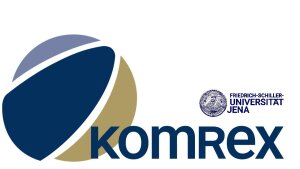
With the expansion of the KomRex in 2017, research questions on the topic of democracy education and promotion have become a central task of the KomRex. Democracy is a form of life, society and governance that requires knowledge, judgment and action skills. Democracy education does not primarily mean the teaching of topics, but all processes of (personal) acquisition of democratic knowledge as well as corresponding judgment and action competence. It sets high demands on methodological competence and requires didactics of experience and active participation. Democracy education strengthens a human rights-oriented sense of responsibility and addresses the questions of what promotes democracy and equal participation and what endangers them.
Our tasks in the field of democracy education include:
- Evaluations and scientific monitoring in the field of democracy education and promotion
- Transfer of scientific findings to politics, practice and civil society
- Practice-oriented cooperation with multipliers and education institutions
Part of our transfer work is to offer advice and scientific expertise on the topics of democracy education and promotion. Do you have any questions on these topics? Please do not hesitate to contact us. de
Logo in Bearbeitung für die Landing Page
Graphic: Matthias KochAs part of the key subject of democracy education, KomRex offers ongoing project support and advice that strengthens practice partners in the implementation of democracy education principles. In addition, KomRex offers and further develops corresponding qualification and training courses.
With this in mind, researchers at KomRex developed the "Aktionsplan Demokratiebildung für Thüringen", an agenda, which contains proposals for strengthening and broadening the impact of formal and non-formal education in Thuringia as well as suggestions for its implementation.
PARTS
The activities in the field of democracy education are closely linked to research into the prevention of right-wing extremist attitudes and the development-oriented analysis of the emergence of these attitudes. Here, KomRex draws on many years of research at the Friedrich Schiller University Jena, such as the PARTSExternal link, training program developed in a DFG research project, which lays the foundation for prejudice-free development as early as elementary school. The PARTS project was developed as part of the DFG research group "Discrimination and Tolerance in Intergroup Relationships" and funded by the Deutsche Forum für KriminalpräventionExternal link (German Forum for Crime Prevention, DFK).
Publications on democracy education:
- Patz, J. (2018) Professionell gegen Fake News. Demokratiebildende Handlungskompetenzen für Lehrkräfte. In Fake News, Pädagogik, 70(7/8), 36–39.
- Damerau, F., May, M., & Patz, J. (2017). Demokratiebildung in Professionalisierungsprozessen: Eine Analyse der Thüringer Ausbildungssituation in ausgewählten Regelstrukturen sozialer Berufe. KomRex, Friedrich-Schiller-Universität Jena. Downloadpdf, 3 mb · de
- May, M. (2017). Vorurteile bearbeiten durch politische Bildung? Ergebnisse eines didaktischen Fallseminars. In A. Beelmann (Hrsg.), Wochenschau Wissenschaft. Toleranz und Radikalisierung in Zeiten sozialer Diversität: Beiträge aus Psychologie und Sozialwissenschaften (1. Aufl., S. 107–125). Wochenschau Verlag.
- Karing, C., & Beelmann, A. (2016). Wirksamkeit und Implementation von Präventionsmaßnahmen in der Schule. Empirische Pädagogik, 30, 302–319.
- May, M., & Hertelt, W. (2016). Kritische politische Bildung ohne didaktische Konzeption? – Rekonstruktion didaktischer Grundzüge kritischer politischer Bildung. Zeitschrift Für Didaktik Der Gesellschaftswissenschaften, 7(2), 119–129.
- May, M. & Patz, J. (2016). Stärken und Schwächen der Demokratiebildung in Aussagen von Expertinnen und Experten. Eine explorative Erschließung für Thüringen, KomRex, Friedrich-Schiller-Universität Jena (Hrsg.), KomRex, Friedrich-Schiller-Universität Jena. Downloadpdf, 773 kb · de
